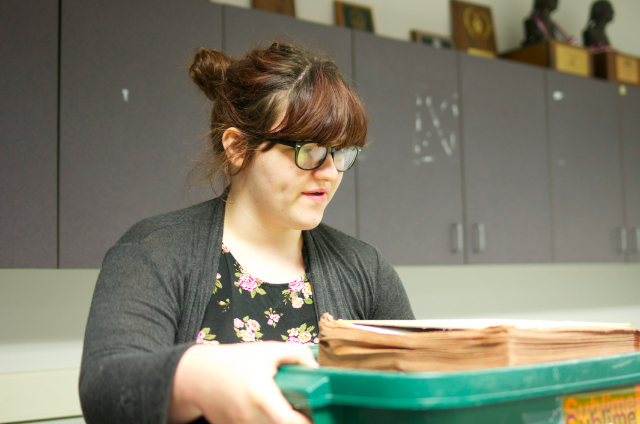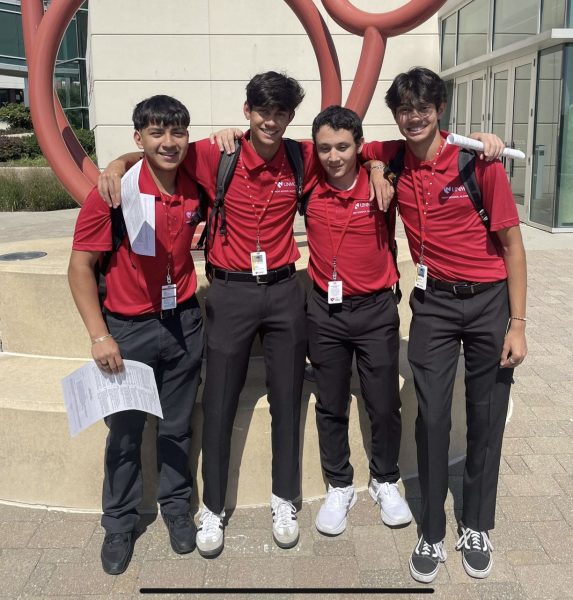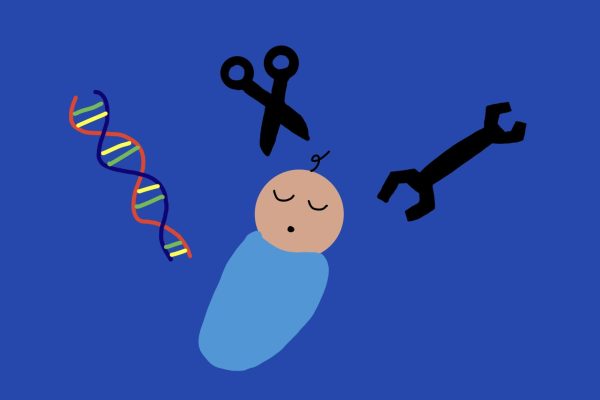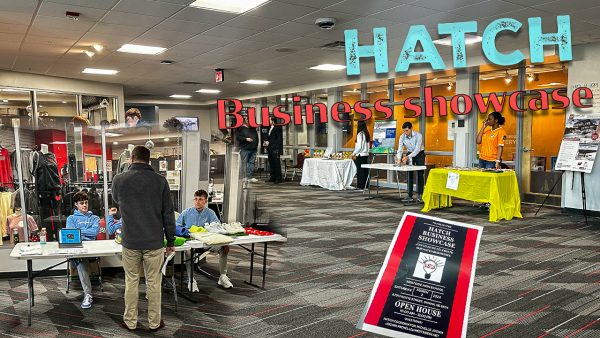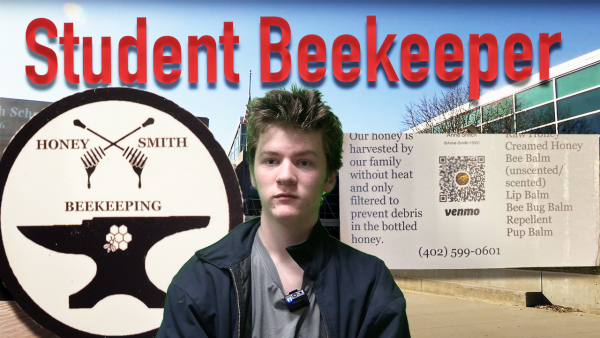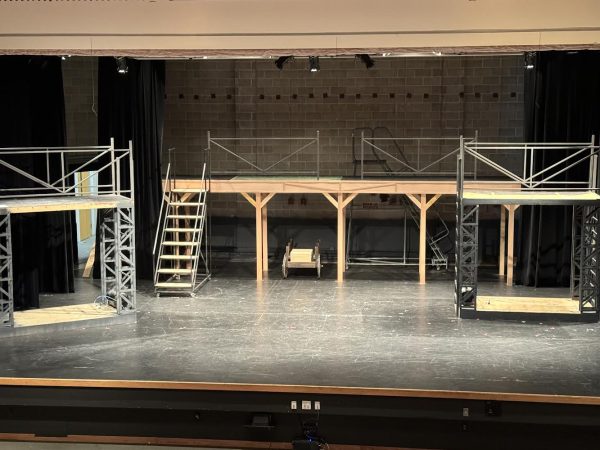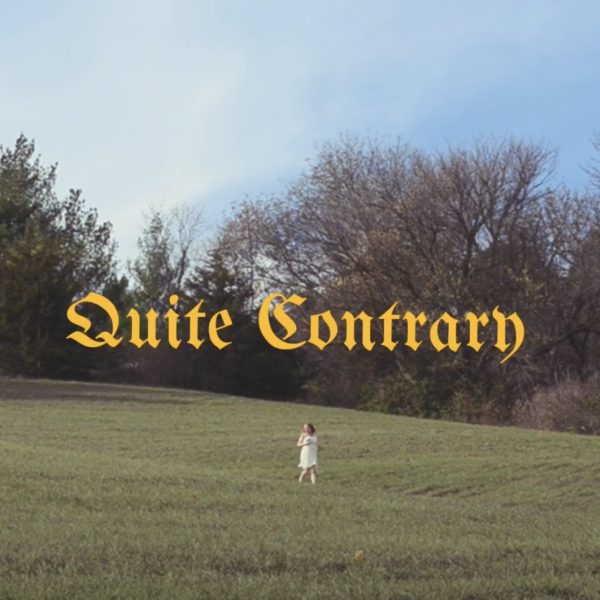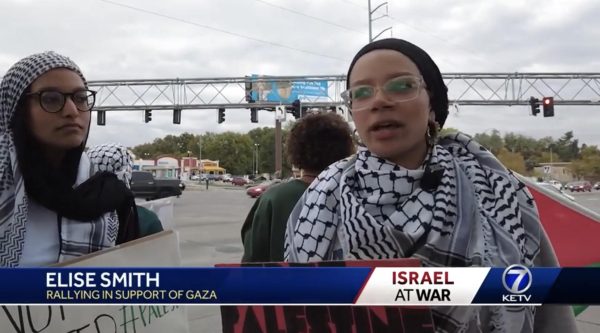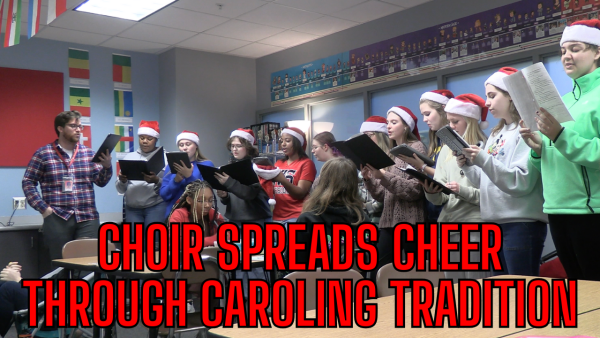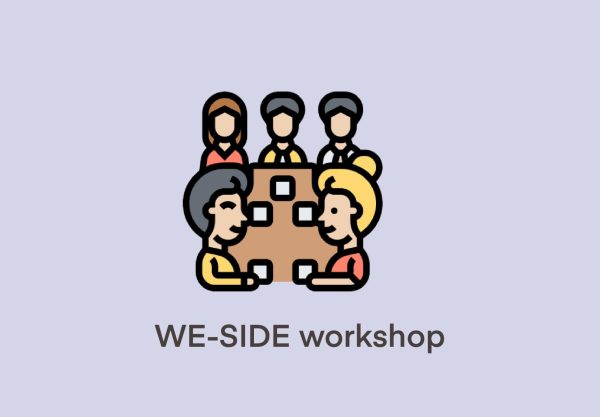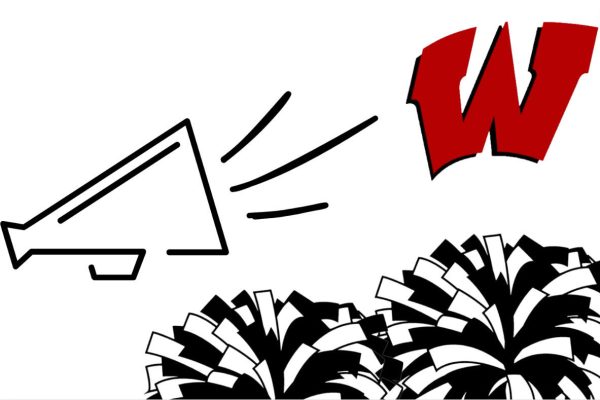Junior debaters win state in unconventional style
After being one of the top teams in Nebraska during this year’s debate season, juniors Lia Hagen and Peyton Wells won their March 7-8 district tournament, which meant they qualified for the National Forensics League’s national competition.
There were only 11 policy debate teams at districts, though. At state, a separate competition, debaters from all of Nebraska’s districts competed. Unfazed, Hagen and Wells went undefeated in the preliminary rounds, which earned them a shortcut to semifinals. They made it through to finals.
And then they won that too.
Although not totally unexpected, the fact that Hagen and Wells were crowned state champions this year was not only an honor for them and for Westside, but also a victory for their particular brand of debate.
“Peyton and I are nontraditional debaters,” Hagen said. “We call it K-debate or Kritikal debate. It’s a new form of debate that’s sort of frowned upon by a lot of people in the community, and essentially what it’s about is…whereas a traditional debate is about government policies, Kritikal debate tends to be about advocacy.”
Hagen and Wells are partners in policy debate, which is one of four kinds of debate high schoolers usually compete in. A new policy debate topic is announced each year. This year, the statement that debaters had to debate for and against was “Resolved: The United States federal government should substantially increase its economic engagement toward Venezuela, Mexico or Cuba.”
In the fall, policy debaters across the country got to work preparing affirmative cases supporting the statement and negative cases negating the statement. Traditional debaters, of which there are many, tend to focus on political issues, but as Kritikal debaters, Hagen and Wells took a different approach.
Their first case, the one they used the most, was called “The Huntress” and dealt with the issue of “femicide” in Juarez, Mexico. American economic engagement in Juarez has led to the building of many factories that attract thousands of low-wage female laborers. The result of the migration and social conditions in Juarez has been the creation of a culture of violence towards women — called femicide. Rape and murder are commonplace in Juarez, and less than one percent of crimes against women are prosecuted, according to Hagen.
In September 2013, a woman in Juarez put on a blond wig, dressed in all black, and boarded a bus with a gun. After saying, “You think you’re so tough?” she shot two known rapists. Although the woman (nicknamed Diana, the Huntress) was never caught, she sent an e-mail to the media in Juarez detailing the reasons for her actions.
“One of the phrases was ‘Juarez women are strong and we won’t be stepped on any longer,’” Wells said. “It was a really powerful letter talking about how the women of Juarez are always stepped on and never thought of, and it was kind of a revolutionary thing that she as a woman struck out at the system that was basically screwing her over.”
In focusing on the Huntress and the effects of U.S. economic engagement on the women of Juarez, Wells and Hagen aimed to educate people as well as to win debates. The same was true for their two other affirmative cases, which also focused on real people rather than politics and economics in a traditional sense.
One of their other cases, called “We Are Volcanoes,” talks about Venezuela.
“There’s one line in one of our cards that inspired the name, which is ‘When women have voice, we are volcanoes. When women share their experiences as truths, new mountains emerge,’ or something like that,” Hagen said.
At the same time as student revolts and protests are going on in the South American country, violence and discrimination against women are common. In particular, transgender women are often left out of the Venezuelan feminist movement. As part of this case, Hagen and Wells read poetry and narratives by Venezuelan women and trans women.
“‘Volcanoes’ is about redefining what it means to be political, because our current definition of ‘political’ in a lot of ways excludes those who are at the bottom rungs of society,” Hagen said. “We imagine what is political to only be going to the government and being like, ‘Let’s pass a law.’ But in reality, a lot of politics are in churches, or they’re small activist movements. So it’s all about redefining political in a way that allows women, and trans women in particular, to be a part of the movement.”
The third case, which also deals with transgender issues, is called “The Exorcist.”
“The Exorcist talks about how in the debate world, we kind of portray things as very black and white,” Wells said. “Even people who try to talk about things like femicides in Juarez either portray Mexico as this dirty grimy place with drug lords and they kill women, or they just can’t help it and it’s full of women victims, and people who are stuck in these drug cartels. And so we talk about how we need to ‘queer’ our understanding of what economic engagement is, and our relationship to Mexico.”
In “The Exorcist,” Wells and Hagen used the story of a Mexican town called Palo Seco, which became home to a gay bar and many openly gay or transgender people, to illustrate the idea of bringing unfamiliar ideas into a public place. In particular, they focused on a person called Lupe, who had a very complicated gender identity and became a “destabilizing element” within the “gender binary” system.
“Essentially what the case is about is bringing this strange and outside perspective, which many people don’t consider, to the public space of debate,” Hagen said.
As Kritikal debaters, Hagen and Wells are used to bringing different, sometimes strange perspectives to their rounds. Although most of the judges in Nebraska were receptive to their style, many people in the debate community are very opposed to using debate as a place for advocacy rather than a place to argue for or against government policies.
“This year it’s been particularly bad because last year a Kritikal debater in college won the two biggest tournaments in college, and it sort of leaked down,” Hagen said. “A lot of the coaches and their students are not really happy with Kritikal debate this year. For example, the next year’s resolution was written specifically so Kritikal debaters can have as little to talk about as possible. So there’s a lot of clash, and a lot of the things we talk about are how we can make the debate community better, because it’s a place where a lot of people get educated and where a lot of people come to learn about advocacy.”
In a Midwest national tournament for second-year debaters that they recently attended, Hagen and Wells went 1-5, meaning they won one round and lost five. At first glance, that doesn’t seem to be a very good record — but Hagen and Wells explained that it doesn’t matter.
After realizing that they weren’t going to break to elimination rounds after they had three losses, they decided to do something that had only ever been suggested. They had always heard about something called open-forum discussions, where the debaters turn the round into a discussion rather than a competition, but they’d never tried that before. At the Midwest national tournament, though, they decided it was time. They just didn’t feel like people were connecting to the things they were talking about in their Kritikal cases.
“We just kind of sat down and had a ‘come to Jesus’ moment,” Wells said. “We were basically like, ‘All right, we want to talk to the people at this tournament, figure out how the people at this tournament are feeling about what we’re talking about — kind of talk about just debate holistically.’ So we conceded the last two rounds and we ended up just talking about issues in the debate community.”
Despite the widespread prejudice against Kritikal debate, Wells said continuing with it next year is “nonnegotiable,” even though the policy debate topic has to do with ocean exploration. She and Hagen are still in the brainstorming process, but they’ve already started talking about using metaphors that have to do with the sea.
Unfortunately, neither Wells nor Hagen will be able to make it to the national tournament they qualified for this year by winning districts.
Next year, though, the girls will be back together as a team, and they think they have the ability to win state again. Debate is a activity that takes up hours and hours of their time — they often get up at six in the morning during tournament weekends to practice, and sometimes debate in six two-hour rounds in one day. They once stayed at a restaurant until four in the morning with their coaches, preparing for the next day’s rounds.
After losing former head coach Dana Christensen, Hagen and Wells were the only ones pushing themselves at the end of this season. With little guidance, they’ve had to become independent quickly. But they’re on a roll — and besides, they’re too invested in the debate world to stop now.
“Debate is really a community,” Hagen said. “When you’re on a sports team, you have a community with that team, but when you’re in debate, you debate with people nationally. You become friends with them, you’re Facebook friends with them…There’s a massive debate culture with its own jokes, with its own blogs, with its own Facebook pages. It’s essentially its own language. The reason we had the open forum round is because we care about making the community better.”
Your donation will support the student journalists of Omaha Westside High School. Your contribution will allow us to purchase equipment and cover our annual website hosting costs.


